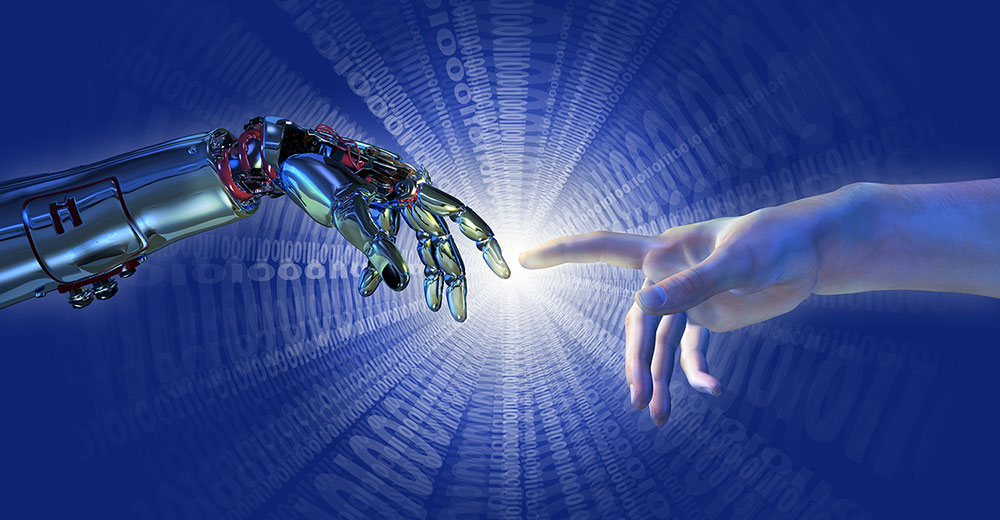The AI Revolution Is at a Tipping Point

Some technology insiders want to pause the continued development of artificial intelligence systems before machine learning neurological pathways run afoul of their human creators’ use intentions. Other computer experts argue that missteps are inevitable and that development must continue.
More than 1,000 techs and AI luminaries recently signed a petition for the computing industry to take a six-month moratorium on the training of AI systems more powerful than GPT-4. Proponents want AI developers to create safety standards and mitigate potential risks posed by the riskiest AI technologies.
The nonprofit Future of Life Institute organized the petition that calls for a near-immediate public and verifiable cessation by all key developers. Otherwise, governments should step in and institute a moratorium. As of this week, Future of Life Institute says it has collected more than 50,000 signatures that are going through its vetting process.
The letter is not an attempt to halt all AI development in general. Rather, its supporters want developers to step back from a dangerous race “to ever-larger unpredictable black-box models with emergent capabilities.” During the time out, AI labs and independent experts should jointly develop and implement a set of shared safety protocols for advanced AI design and development.
“AI research and development should be refocused on making today’s powerful, state-of-the-art systems more accurate, safe, interpretable, transparent, robust, aligned, trustworthy, and loyal,” states the letter.
It is doubtful that anyone will pause anything, suggested John Bambenek, principal threat hunter at security and operations analytics SaaS company Netenrich. Still, he sees a growing awareness that consideration of the ethical implications of AI projects lags far behind the speed of development.
“I think it is good to reassess what we are doing and the profound impacts it will have, as we have already seen some spectacular fails when it comes to thoughtless AI/ML deployments,” Bambenek told TechNewsWorld.
Anything we do to stop things in the AI space is probably just noise, added Andrew Barratt, vice president at cybersecurity advisory services firm Coalfire. It is also impossible to do this globally in a coordinated fashion.
“AI will be the productivity enabler of the next couple of generations. The danger will be watching it replace search engines and then become monetized by advertisers who ‘intelligently’ place their products into the answers. What is interesting is that the ‘spike’ in fear seems to be triggered since the recent amount of attention applied to ChatGPT,” Barratt told TechNewsWorld.
Rather than pause, Barratt recommends encouraging knowledge workers worldwide to look at how they can best use the various AI tools that are becoming more consumer-friendly to help provide productivity. Those that do not will be left behind.
According to Dave Gerry, CEO of crowdsourced cybersecurity company Bugcrowd, safety and privacy should continue to be a top concern for any tech company, regardless of whether it is AI focused or not. When it comes to AI, ensuring that the model has the necessary safeguards, feedback loop, and mechanism for highlighting safety concerns are critical.
“As organizations rapidly adopt AI for all of the efficiency, productivity, and democratization of data benefits, it is important to ensure that as concerns are identified, there is a reporting mechanism to surface those, in the same way a security vulnerability would be identified and reported,” Gerry told TechNewsWorld.

Thanks for sharing. I read many of your blog posts, cool, your blog is very good.
I think other web site proprietors should take this web site as an model, very clean and wonderful user friendly style and design, let alone the content. You’re an expert in this topic!
Can you be more specific about the content of your article? After reading it, I still have some doubts. Hope you can help me.
Can you be more specific about the content of your article? After reading it, I still have some doubts. Hope you can help me.
Thank you for your sharing. I am worried that I lack creative ideas. It is your article that makes me full of hope. Thank you. But, I have a question, can you help me? https://www.binance.com/pl/register?ref=YY80CKRN
Thanks for sharing. I read many of your blog posts, cool, your blog is very good. https://www.binance.com/it/join?ref=S5H7X3LP
I conceive this site has very fantastic pent written content content.
Can you be more specific about the content of your article? After reading it, I still have some doubts. Hope you can help me.
Can you be more specific about the content of your article? After reading it, I still have some doubts. Hope you can help me.
Hi, just required you to know I he added your site to my Google bookmarks due to your layout. But seriously, I believe your internet site has 1 in the freshest theme I??ve came across. It extremely helps make reading your blog significantly easier.
На сервисе ТО автомобилей мы предлагаем комплексный набор услуг по цифровой диагностике и чип-тюнингу для всех марок авто. Специалисты [url=https://www.uniocraft.com/proxy.php?link=https://tuning-chip.com.ua ]tuning-chip.com.ua[/url] задействуют инновационное оборудование для прецизионной регулировки параметров силового агрегата и электронных систем. Наш техцентр в Харькове выполняет экспертное отключение системы AdBlue, ликвидацию сажевого фильтра, восстановление иммобилайзеров и производство автомобильных чип-ключей. Также мы предлагаем компьютерную диагностику Renault, BMW, Hyundai, Volvo и других марок, очистку форсунок, восстановление и ремонт фар. Для владельцев мотоциклов доступен программная оптимизация, позволяющий повысить мощность и улучшить динамические характеристики. Экспертный подход к ремонту ДВС и работе с топливной системы обеспечивает качественный результат и пролонгацию срока службы вашего транспортного средства.
Источник: [url=https://www.forum-sachsen.com/proxy.php?link=https://tuning-chip.com.ua ]Отключение системы adblue на tuning-chip.com.ua [/url]
Буду рад помочь по вопросам чип – пишите в Телеграм imy22
Thanks for sharing. I read many of your blog posts, cool, your blog is very good.
55n494
Thank you for your sharing. I am worried that I lack creative ideas. It is your article that makes me full of hope. Thank you. But, I have a question, can you help me?
Защищенность соединения при работе с секретными данными должна быть приоритетом для любой компании. Утечка информации может привести к существенным последствиям и финансовым потерям. Применение систем [url=https://telegra.ph/Bezopasnost-biznesa-v-internete-03-30 ]ферма прокси мобильных [/url] значительно минимизирует подобные риски, обеспечивая дополнительный слой защиты. Подлинные IP-адреса мобильных операторов позволяют создать прочный барьер между пользователем и потенциальными рисками в интернет-пространстве.
Источник: [url=https://graph.org/Kak-vybrat-optimalnyye-nastroyki-proksi-03-31 ]shared мобильные прокси [/url]
Я с готовностью оказать помощь по вопросам Бесплатное мобильное прокси – стучите в Телеграм vvp30
http://fabnews.ru/blog/8434.html
Good https://is.gd/tpjNyL
I carry on listening to the news speak about getting boundless online grant applications so I have been looking around for the top site to get one. Could you tell me please, where could i get some?